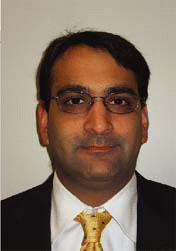Since the publication of the Institute of Medicine’s report, To Err is Human,1 accumulating data have shown that patient safety systems are slowly improving. There is greater recognition of patient safety in the medical literature and more monetary awards for research regarding medical errors.2 Most quality improvement experts call for an acceleration of progress in order to meet the goals set out by institutions and organizations across medical specialties.3-8
Explore This Issue
November 2006In otolaryngology, Roberson et al. expressed to their colleagues that there is a well-defined body of knowledge that substantiates there is a minimum human error rate that can never be eliminated, and therefore, gaining a better understanding of systems-science principles can help clinicians provide better and safer care.9
How does otolaryngology differ from medical practice, general surgery, or other surgical subspecialties when it comes to medical errors? This question was posed at the heart of research conducted in the past five years by a team including Rahul K. Shah, MD; David W. Roberson, MD; and Gerald B. Healy, MD, at Boston Children’s Hospital.10,11 Dr. Shah, now with the Division of Otolaryngology at Children’s National Medical Center in Washington, DC, said that Dovey and Elder’s landmark work developing a taxonomy for medical errors in family practice12,13 was the inspiration for their research team when they subjected their specialty to the medical-error microscope.
Though the content from specialty to specialty will differ, said Nancy Elder, MD, MPH, Associate Professor of Family Medicine at the University of Cincinnati Medical Center, the systems that may be vulnerable to mistakes, adverse events, and near misses are largely the same. That was a good starting place, said Dr. Elder of their studies that examined medical errors and proposed a number of ways to classify them. Hospitals have been studied for much longer with regard to patient safety and quality of medical care than has the outpatient setting. What we know about the outpatient setting lags 20 years behind the hospital setting, but in the last 5 years there has been a lot of additional research in the ambulatory setting.
Key Concerns for Otolaryngologists
Small changes have the ability to result in outcomes that are far beyond what is predicted by incremental measures, wrote Shah et al. in their study outlining a classification of errors in otolaryngology.11 Dr. Shah, now Assistant Professor of Otolaryngology at George Washington University, and his team focused on medical errors specifically from the otolaryngologist’s view. We approach our research on a micro scale to recognize the problems that are occurring. Then, he said, they think about small changes that can have a big effect on the macro results.
The investigators distributed a retrospective, anonymous survey to 2,500 members of the American Academy of Otolaryngology-Head and Neck Surgery (AAO-HNS), inquiring about errors that had been made in the previous six months (see sidebar). The overall response rate was 466 from 2,500 (18.6%) mailed surveys; 256 (55%) of respondents reported no error and 210 reported errors. There were 78 cases of major morbidity and nine deaths. Extrapolating the data, the researchers estimated that more than 2,600 episodes of major morbidity and more than 165 deaths related to error may occur annually in the care of otolaryngology patients.10

Leave a Reply